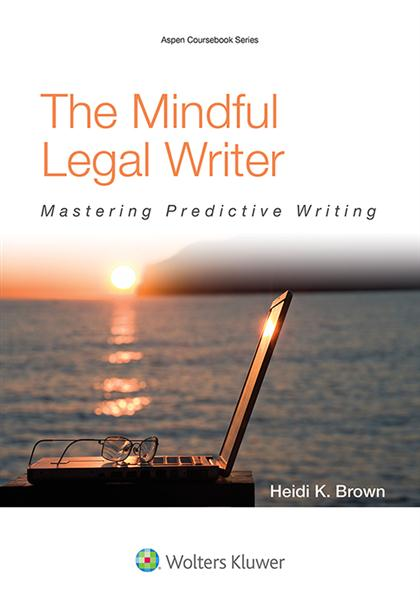We will be closed from 5pm Thursday 17th April for the Easter Bank Holidays, re-opening at 8.30am on Tuesday 22nd April. Any orders placed during this period will be processed when we re-open.

The Mindful Legal Writer: Mastering Predictive Writing by Professor Heidi K. Brown, who has 15 years of experience in the law firm world and 7 years of teaching legal writing, focuses on predictive legal analysis.
It offers law students and junior lawyers a step-by-step approach to learning the “scientific” framework of written predictive legal analysis, while at the same time encouraging them to consider the “artistic” nature of communicating through the written word.
This book also proposes that students consider the basics of the concept of “mindfulness” in the legal writing context—a recent movement in legal education to encourage law students to “be fully conscious and aware of one’s actions and surroundings,” and “pay attention, on purpose, in the present moment” (according to mindfulness advocate, Jon Kabat-Zinn) in order to be a better legal counselor to clients.
Using the mindfulness concept, the author helps students understand how one’s writing fits into the big picture of a legal case and how to:-